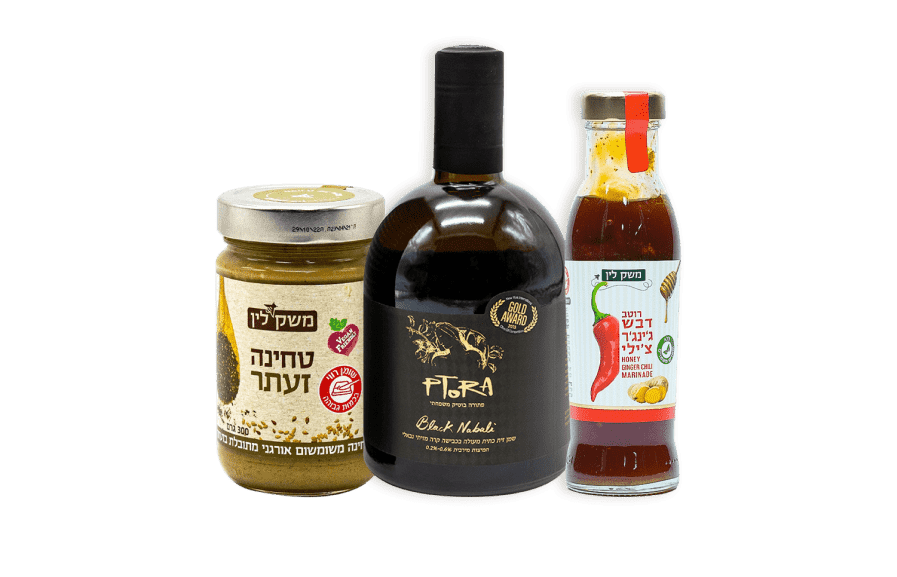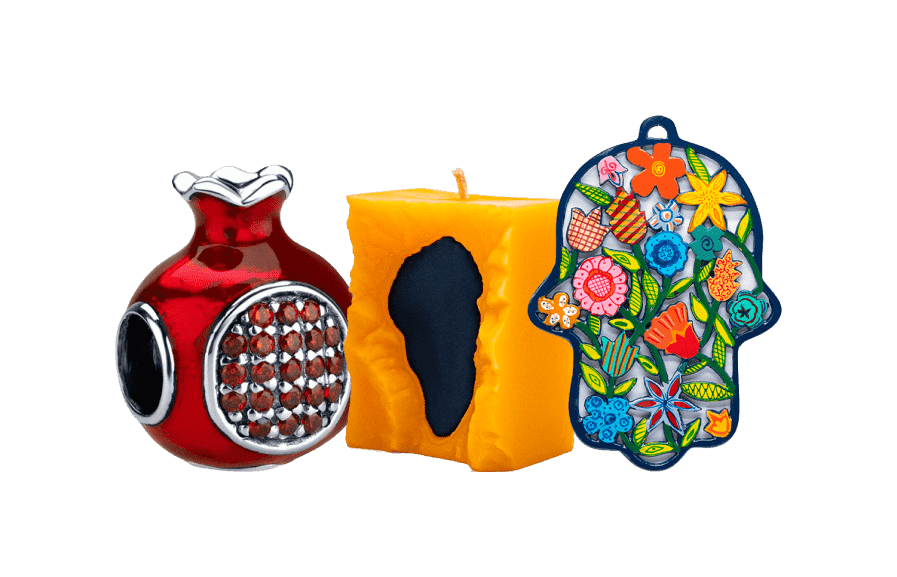In the land of Israel, where prophecy once met the plow, there still grows a fragrant heritage—herbs mentioned in the Bible, tended for generations, and cherished both for their spiritual meaning and practical beauty.
Hyssop, sage, mint, rosemary—these aren’t simply plants. They’re the scents of Scripture, the medicines of the ancients, and the quiet flavor behind countless family recipes passed down over centuries. And today, they’re still harvested on the hillsides of Judea and Galilee—often by small family farmers using methods not so different from those of biblical times.
At Lev Haolam, we’ve had the privilege of sharing these herbs—dried, blended, or lovingly infused into oils, soaps, and teas. In doing so, we don’t just offer a taste or scent. We offer a living connection to the people, places, and prayers of the Bible.
🌿 Hyssop (Za’atar): A Sacred Scent Through the Ages
“Purge me with hyssop, and I shall be clean” — Psalm 51:7
One of the most frequently mentioned herbs in the Bible, hyssop was used in rituals of purification, healing, and sacrifice. It was dipped in blood and sprinkled during Passover, and it symbolized spiritual cleansing in Temple worship.
Today, Israelis know it best as za’atar—an earthy, aromatic blend made from dried hyssop leaves, sesame seeds, sumac, and salt. Sprinkled on warm pita with olive oil or baked into flatbreads, it brings a distinctly biblical flavor to everyday meals.

🍃 Sage: The Herb of Peace, Protection, and Clarity
Though not as often mentioned as hyssop, sage was likely one of the herbs used in temple incense and household purification. In Hebrew, it’s called marva—and it’s long been known for its healing and calming properties.
Sage grows wild in the rocky soil of Samaria and Galilee, its scent rising with the morning sun. In ancient homes, it was burned to cleanse the air and brewed as a tea for fevers, sore throats, and anxious minds.
In modern homes, sage is still a treasured ally. Dried leaves are brewed into herbal infusions or tucked into linen drawers. It’s used in natural skincare, too—soothing in salves, relaxing in bath sachets, and clarifying in essential oil blends.

🌱 Mint: Humble, Healing, and Joyfully Shared
“You tithe mint and dill and cumin…” — Matthew 23:23
This small verse reminds us how valued even the most modest herbs were in biblical life. Mint—or nana in Hebrew—was cultivated in courtyard gardens, used to flavor food, and offered with reverence.
Today, nana mint tea is one of Israel’s most beloved drinks. Sweet, bright, and cooling, it’s served to guests as a sign of hospitality—especially in the summer months. Mint also soothes nausea, supports digestion, and refreshes the mind.

🌿 Every herb tells a story—and many of those stories live inside the boxes we send.
If you’re curious about the biblical ingredients and handmade treasures you might discover, take a peek at how our surprise boxes work.
🌾 Rosemary: Memory, Devotion, and Resilience
Though rosemary isn’t named directly in Scripture, it grows abundantly in the regions where the prophets once walked. Long associated with remembrance and devotion, it’s used in many cultures to honor the past and anoint the present.
Rosemary’s sharp, woody aroma clears the senses and calms the nerves. In Israel today, it’s used in cooking, herbal medicine, and spiritual rituals, often paired with lavender or sage in aromatic blends.

🌿 From Ancient Soil to Modern Soul
These herbs—hyssop, sage, mint, rosemary—were not only used in sacred rituals. They were part of everyday life in biblical times: grown in gardens, stored in clay jars, passed from generation to generation. They connected people to the land, to healing, and to holiness.
Today, that connection is still possible. And when these herbs arrive in your Lev Haolam box—wrapped in kraft paper, tied with twine, labeled in Hebrew—you receive more than a product. You receive a living piece of history.
🌿 Many of our surprise boxes feature these time-honored herbs—infused into soaps, oils, teas, and spice blends—crafted in Israel with love and memory. Want to explore more? Visit our page to see how these sacred plants become meaningful gifts in your home.
A Gift of the Earth, A Reminder of the Divine
In a world rushing forward, biblical herbs invite us to pause, to breathe, to remember. Their scents are familiar. Their stories are eternal.
They still grow in the same soil. Still heal. Still bless.
And they still have a place in our lives—bringing the past into the present, leaf by leaf.









